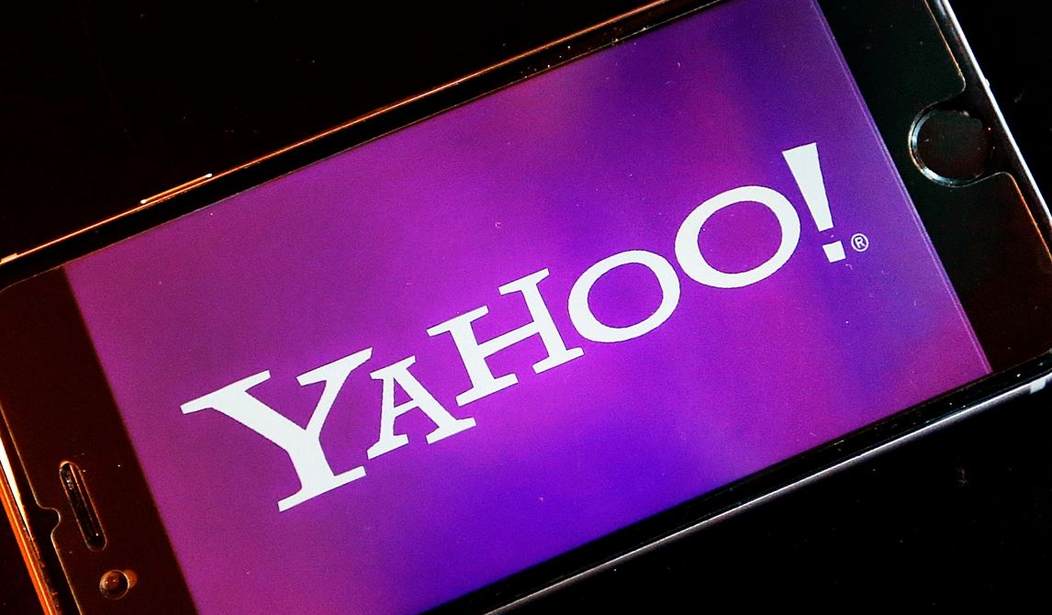Better late than never? Perhaps, but Yahoo’s realization of the threat China poses to privacy and liberty comes very late indeed. The Internet giant has decided to get out the market in China, one from which it had been largely ejected already:
Yahoo said Tuesday said it plans to pull out of China, citing an “increasingly challenging business and legal environment.”
The company said in a statement that its services will no longer be accessible from mainland China as of Nov. 1.
“In recognition of the increasingly challenging business and legal environment in China, Yahoo’s suite of services will no longer be accessible from mainland China as of November 1,” the statement read.
It added that Yahoo “remains committed to the rights of our users and a free and open internet.”
The AP notes that Yahoo had much of its access blocked over disputes about cooperation with China’s censors. CBS News also picks up on that part of the story, without which Yahoo’s exit might have been less inevitable:
Yahoo had previously downsized operations in China, and in 2015 shuttered its Beijing office. Its withdrawal from the country is largely symbolic as at least some of Yahoo’s services, including its web portal, have already been blocked. …
Chinese authorities maintain a firm grip on Internet censorship in the country, and require companies operating in China to censor content and keywords deemed politically sensitive or inappropriate.
China has also blocked most international social media sites and search engines, such as Facebook and Google. Users in China who wish to access these services circumvent the block by using a virtual private network.
Yahoo also previously operated a music and email service in China, but both services were also stopped in the early 2010s.
China has taken aim at the VPN work-around in a new law that took effect yesterday, which clearly provided the catalyst for Yahoo’s total withdrawal. The Orwellian-named “Personal Information Protection Law” apparently requires providers to store all of the information that VPNs kept private and to allow China’s censors access to it.
The BBC explains the new law and its impact:
Designed as a Chinese data-protection law, it introduces a range of regulations about how data can be collected and stored, with the threat of potentially massive fines of up to 5% of a company’s annual turnover.
Foreign entities processing user information – such as through web cookies and services – must have a presence, or appoint a representative on the Chinese mainland, responsible for enforcement.
In some ways, it is not dissimilar from privacy-focused laws, such as GDPR in Europe. But the political environment is significantly different in China from that in many western nations, with strict censorship requirements.
No kidding. Regardless of the relative merits of the GDPR regulatory scheme, its purpose is to protect consumer privacy. The “regulation” in China is to protect the regime by snooping on consumers, and not just those in China.
That increased enforcement also drove Microsoft to pull its LinkedIn service from China three weeks ago, at least functionally:
LinkedIn, in a statement Thursday, said that it made the decision after “facing a significantly more challenging operating environment and greater compliance requirements in China.”
Microsoft’s move comes at a time when China’s Communist Party is ratcheting up its control over its largest tech companies, private enterprises and online commentary, as it continues a campaign to assert itself more forcefully across the economy and Chinese society.
In March, LinkedIn said it would be temporarily pausing new member sign ups in China as it ensured it was in compliance with local law. Around the same time, China’s internet regulator told LinkedIn officials to better regulate its content and gave them 30 days to do so, according to people familiar with the matter. In recent months, LinkedIn notified several China-focused human-right activists, academics and journalists that their profiles were being blocked in China, saying they contained prohibited content.
LinkedIn said it would replace its Chinese service, which restricts some content to comply with local government demands, with a job-board service lacking social-media features, such as the ability to share opinions and news stories.
All of this belated acknowledgment of the Xi Jinping regime’s malevolence is certainly welcome, but still weak sauce. Yahoo’s leaving because they’re largely no longer there anyway. Microsoft won’t offer LinkedIn but will replace it with job boards. Google, Apple, Facebook, and Twitter still cooperate with Beijing and their increasing demand for access to snoop on their users. At what point do these tech platforms join the pseudo-Exodus from China in real terms and make a stand for privacy and liberty when it counts?








Join the conversation as a VIP Member